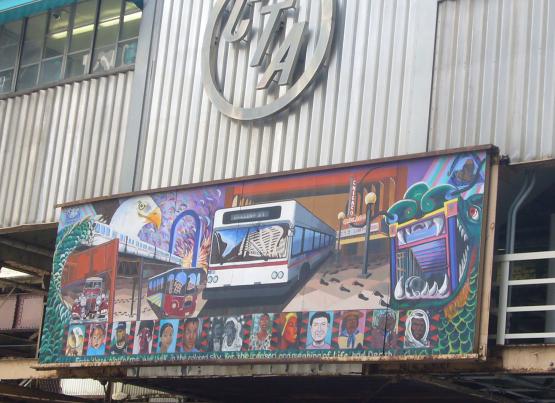
Right on the streets of every American community, robbery takes place every working day. You might not realize how much value the people of Chicago (and every other community) create, simply by going about our daily activities. What is this wealth, how do we create it, and where does it go?
Originally conceived as a field trip for Progress & Poverty students, this stroll — about 2 km and 90 minutes — presents some answers for those interested in finding out. Additionally, we’ll take a look at recovered loot of a long-ago theft, learn how Thomas Jefferson would have solved the problem of financing Chicago’s public schools, and see an economic development incentive that costs less than nothing. We might stop for snacks along the way (individual settlement).
Detailed sourced notes will be provided. This is now a free tour, no donation required, although we do appreciate (tax-deductible) contributions from those who can afford it and find the event worthwhile.
Between 1948 and 1973, Americans’ real wages rose almost as fast as their productivity. After 1973, productivity grew 147% but wages rose only 19%. This raises two questions:
(1) If workers getting less, who is getting more?
(2) Is there a way to restore the balance?
To solve the problem of poverty, and the many other problems that follow from it, ordinary workers need higher wages. George Menninger describes how to raise wages without interfering in the free market and without taking anyone’s earnings.
George Menninger is an instructor at the Henry George School of Chicago, and attendees at this free program will have the opportunity to sign up for his Progress & Poverty course.
You can sign up for this free event thru Eventbrite, or RSVP directly by email.
Between 1948 and 1973, Americans’ real wages rose almost as fast as their productivity. After 1973, productivity grew 147% but wages rose only 19%. This raises two questions:
(1) If workers getting less, who is getting more?
(2) Is there a way to restore the balance?
To solve the problem of poverty, and the many other problems that follow from it, ordinary workers need higher wages. George Menninger describes how to raise wages without interfering in the free market and without taking anyone’s earnings.
George Menninger is an instructor at the Henry George School of Chicago, and attendees at this free program will have the opportunity to sign up for his Progress & Poverty course.
No reservation is required, but you can let us know by email that you’re coming.
Between 1948 and 1973, Americans’ real wages rose almost as fast as their productivity. After 1973, productivity grew 147% but wages rose only 19%. This raises two questions:
(1) If workers getting less, who is getting more?
(2) Is there a way to restore the balance?
To solve the problem of poverty, and the many other problems that follow from it, ordinary workers need higher wages. George Menninger describes how to raise wages without interfering in the free market and without taking anyone’s earnings.
George Menninger is an instructor at the Henry George School of Chicago, and attendees at this free program will have the opportunity to sign up for his Progress & Poverty course.
No reservation is required, but you can let us know by email that you’re coming.
